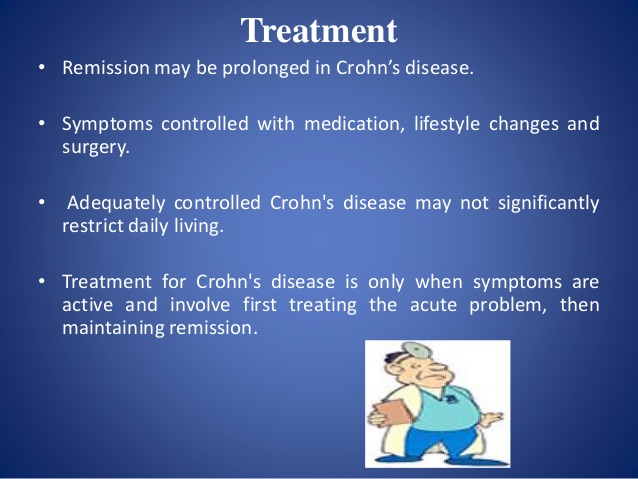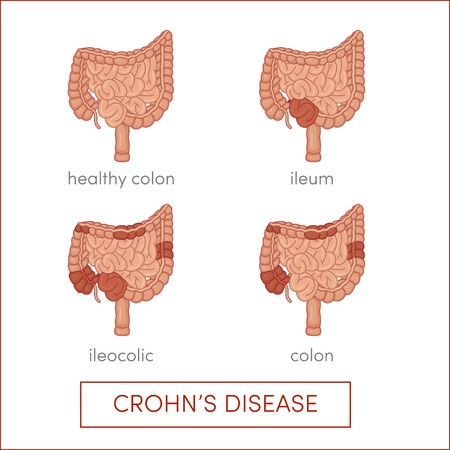
Symptoms of Crohn's Disease have been the main concern of doctors for years. While there is no proven cure for this disorder, treatments can often lessen its symptoms and signs, and in some cases, bring about long term remission. For patients with mild to moderate Crohn's, it can be treated through lifestyle changes and medication. However, for patients with more serious symptoms, surgery may be recommended.
Some of the most common symptoms of Crohn's are diarrhea and abdominal pain. Other symptoms include skin rashes, swelling and bleeding of the bowel. While the presence of symptoms may not indicate a definite diagnosis, they do help determine the kind of treatment that needs to be given. The treatment of your Crohn disease is based on the severity and frequency of your symptoms. Medication and diet have been known to be effective in treating symptoms, but the true cure is still unknown.
When you first notice signs of Crohn's, your doctor will most likely test for it. This may include testing blood and stool samples, which reveal the presence of abnormal substances. Your doctor may also request that you undergo a physical examination. If any of the physical tests show something unusual, a more thorough medical exam will be ordered.
Treating the symptoms of Crohn's disease usually aims to relieve the pain and inflammation caused by the disease. Anti-inflammatory drugs like cortisone are used to relieve pain, swelling, and intestinal gas. In some cases, doctors may recommend surgery to help heal damaged areas or reduce ulceration.
The length of time you take these medicines depends on the severity and cause of the infection. As your condition improves, your doctor will lower your dosage. This is often done over a period of several months. In addition, when your doctor finds a cure for your infection, the dose can be reduced further.
Crohn's disease symptoms may also include nausea. However, nausea is not a clear sign of the infection itself, as it can be caused by other illnesses or side effects of medications. Antibiotics may be prescribed to prevent or treat nausea. You can also try changing your diet to prevent symptoms caused by food allergies.

When you notice Crohn's disease is recurring, your doctor may recommend an operation called an antemasic surgery to help clear out the damaged tissue
However, surgery is not always necessary. Patients with severe symptoms are often prescribed a low-salt diet to help flush waste and toxins out of the body.
Crohn's disease symptoms can vary greatly in severity. Each case is different, and you may not experience symptoms at certain times in your life. It is important to discuss with your doctor what is best for you. Because Crohn's disease is a chronic condition, you may need to see your doctor several times over several weeks before deciding on the right treatment for you.
Natural methods can be used to ease your symptoms. These include things like increasing your fiber intake and drinking plenty of water. Other herbs, including alfalfa and saw palmetto, have been known to reduce inflammation and reduce pain, which can lead to faster healing.
Herbs and supplements, such as St. John's Wort, can help reduce the severity of symptoms of Crohn's Disease, especially when taken together. These natural methods are better at eliminating the symptoms of Crohn's Disease, but aren't necessarily a cure.
It's important that if you notice any of the following symptoms, you visit your doctor. The sooner the treatment is started, the easier it will be to get rid of the symptoms. and the faster you can regain your normal life.
Symptoms of Crohn's Disorder can be treated successfully with the help of a doctor and the support of family and friends. When your body is healthy and your symptoms are under control, you can feel better and enjoy a normal life.
Leave a Reply